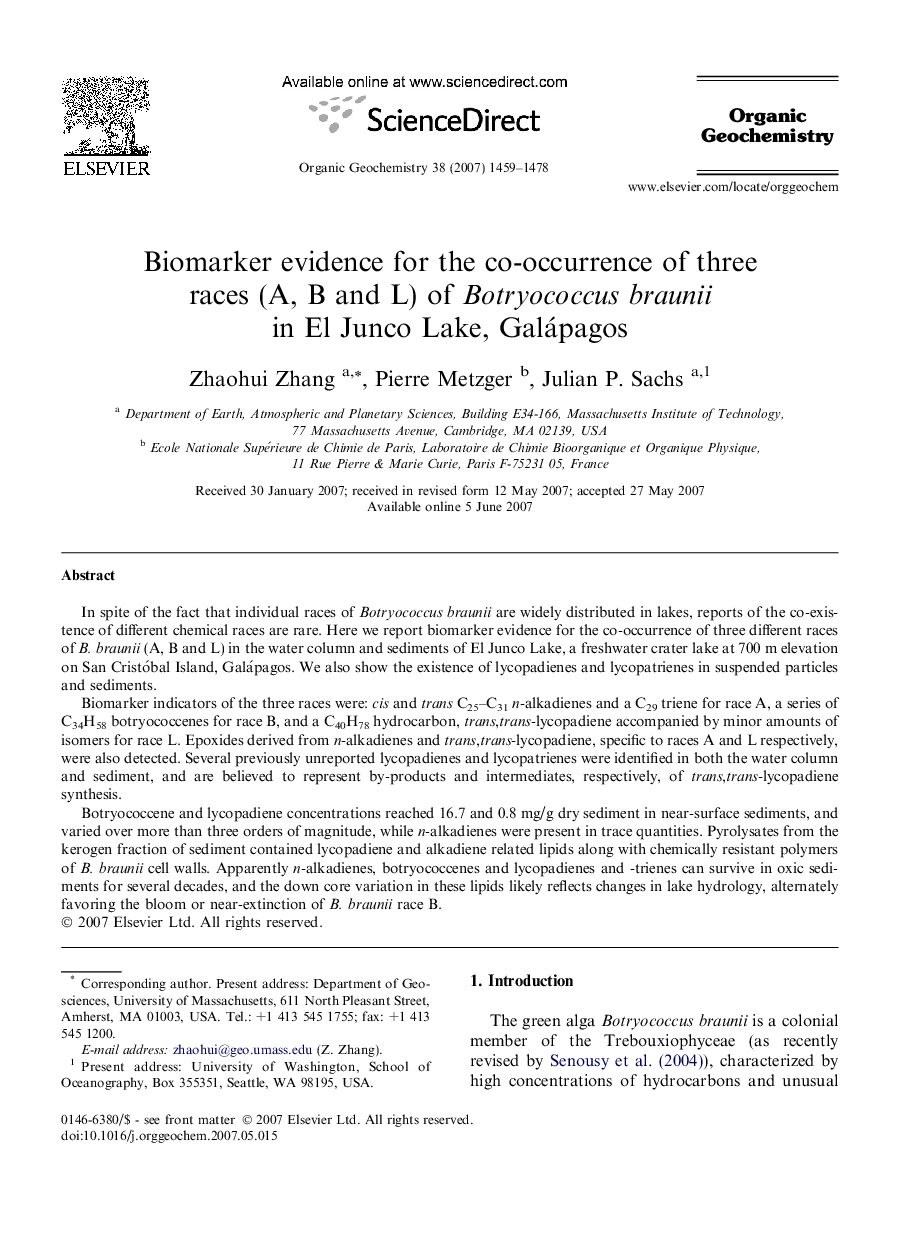| Article ID | Journal | Published Year | Pages | File Type |
|---|---|---|---|---|
| 5163270 | Organic Geochemistry | 2007 | 20 Pages |
Abstract
Botryococcene and lycopadiene concentrations reached 16.7 and 0.8Â mg/g dry sediment in near-surface sediments, and varied over more than three orders of magnitude, while n-alkadienes were present in trace quantities. Pyrolysates from the kerogen fraction of sediment contained lycopadiene and alkadiene related lipids along with chemically resistant polymers of B. braunii cell walls. Apparently n-alkadienes, botryococcenes and lycopadienes and -trienes can survive in oxic sediments for several decades, and the down core variation in these lipids likely reflects changes in lake hydrology, alternately favoring the bloom or near-extinction of B. braunii race B.
Related Topics
Physical Sciences and Engineering
Chemistry
Organic Chemistry
Authors
Zhaohui Zhang, Pierre Metzger, Julian P. Sachs,
